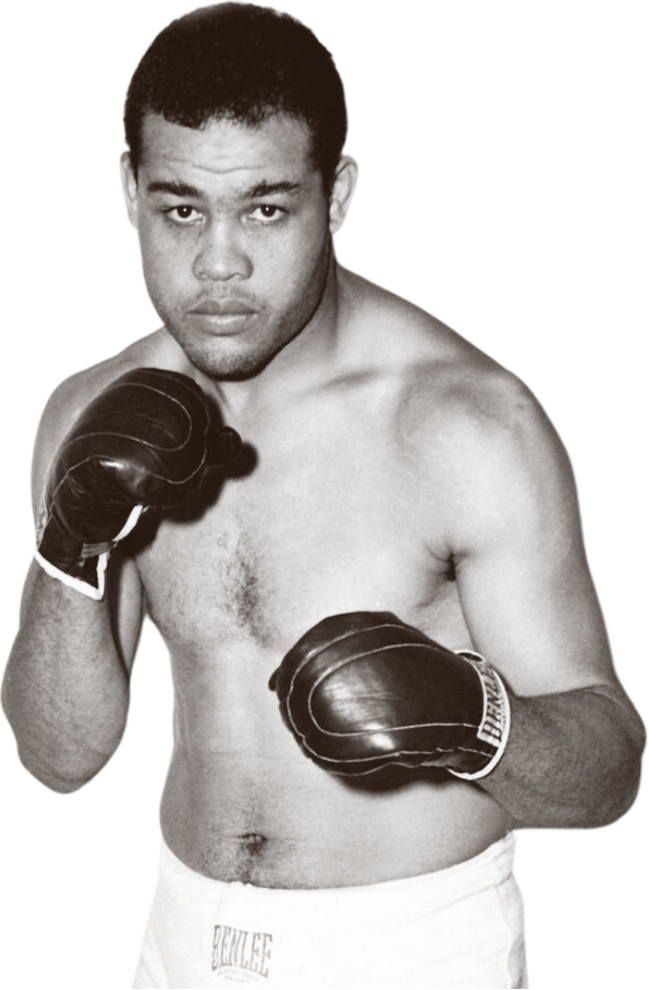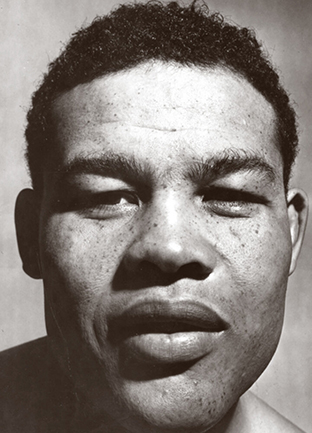Joseph Louis Barrow, known as Joe Louis, was born on May 13, 1914, in LaFayette, Alabama, and raised in Detroit, Michigan. From his humble beginnings in the Black Bottom neighborhood, Louis ascended to the pinnacle of boxing as one of the greatest heavyweights of all time. His career began at the Brewster Recreation Center, and he turned professional in 1934. His swift rise was punctuated in 1937 when he defeated James J. Braddock to become the World Heavyweight Champion, a title he would hold for an unprecedented twelve years.
Early Life And
Rise To Boxing
Stardom
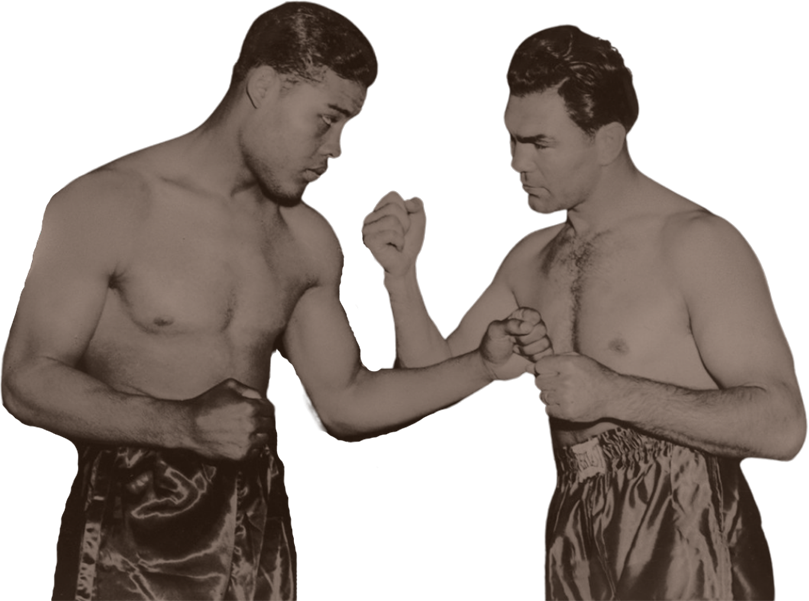
Inside
The Ring
Joe Louis And Max Schmeling In The Ring, New York 1938. The American Boxer Joe Louis Fighting The German Boxer Max Schmeling During The Heavyweight Championship In New York In June 1938. At The Close Of The Match, Joe Louis Preserved His Title Of World Heavyweight Boxing Champion By Beating Max Schmeling By K.O. In The 1St Round In New York.
(Photo by Keystone-France/Gamma-Keystone via Getty Images)
Legacy
Joe Louis’ legacy is far-reaching. Beyond his record-setting career in boxing, his life as a soldier, an equestrian, a bowler, a golfer, and a businessman paints the picture of a multifaceted individual who continuously broke barriers. His role in integrating golf and his contribution to improving the conditions of African American soldiers showcase a commitment to equality and social justice.
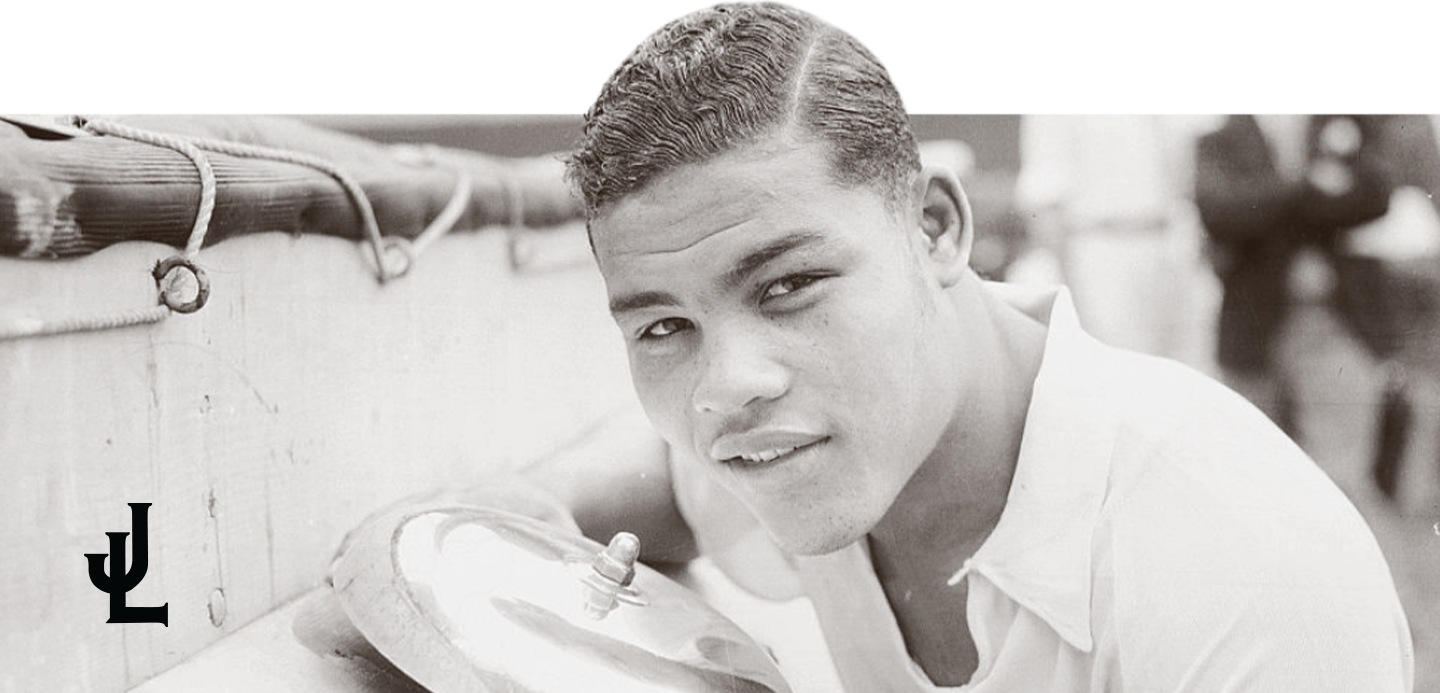
Diverse
Interests And
Achievements
Beyond Boxing
Louis’ talents and interests extended well beyond the boxing ring:
Equestrian Pursuits: Louis had a passion for horse riding, frequently participating in equestrian events. His engagement in this sport broke yet another color barrier, challenging racial norms in areas traditionally dominated by white athletes.
Bowling Enthusiast: He was also an avid bowler, known for his skill and passion for the game. Louis contributed to popularizing bowling among African Americans during the mid-20th century.
Integrating Golf: Louis played a crucial role in desegregating the sport of golf. He was the first African American to play in a PGA event, the 1952 San Diego Open.
Business Ventures: After his boxing career, Louis ventured into various business endeavors, although with mixed success. His efforts to navigate the business world were met with challenges, but they highlighted his ambition to transcend his sporting fame.
1937-
1949
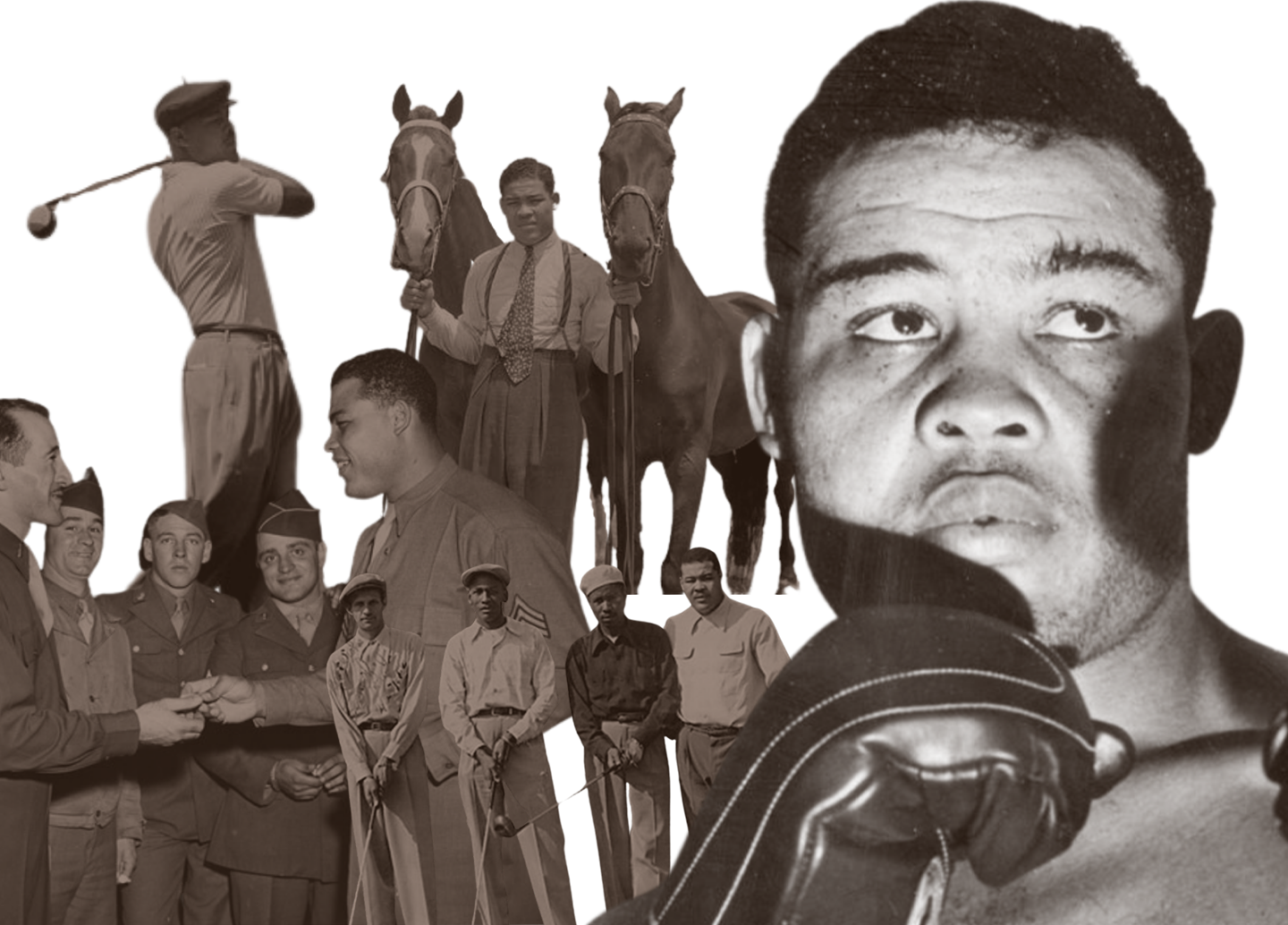

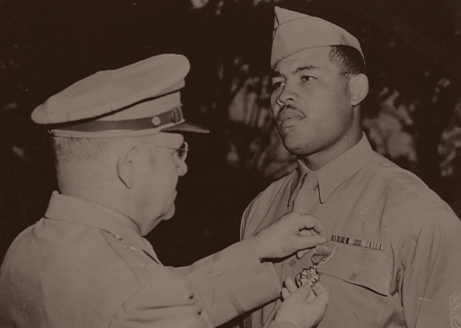
Service In
World War II
During World War II, Louis joined the U.S. Army, serving from 1942 to 1945. Despite being a world-famous athlete, he faced racial discrimination within the army. His response was one of grace and fortitude, using his platform to advocate for racial equality and boosting the morale of African American soldiers. His efforts contributed significantly to the desegregation of the armed forces.

Joe Louis, byname of Joseph Louis Barrow, also called the Brown Bomber, (born May 13, 1914, Lafayette, Alabama, U.S.—died April 12, 1981, Las Vegas, Nevada), American boxer who was world heavyweight champion from June 22, 1937, when he knocked out James J. Braddock in eight rounds in Chicago, until March 1, 1949, when he briefly retired. During his reign, the longest in the history of any weight division, he successfully defended his title 25 times, more than any other champion in any division.

He ended his extraordinary 17-year career with a record of 68 wins (54 of them knockouts) and three losses. When Joe Louis died on April 12, 1981, he had not been champion for more than 32 years.
“Everybody wants to go to heaven, but nobody wants to die.”
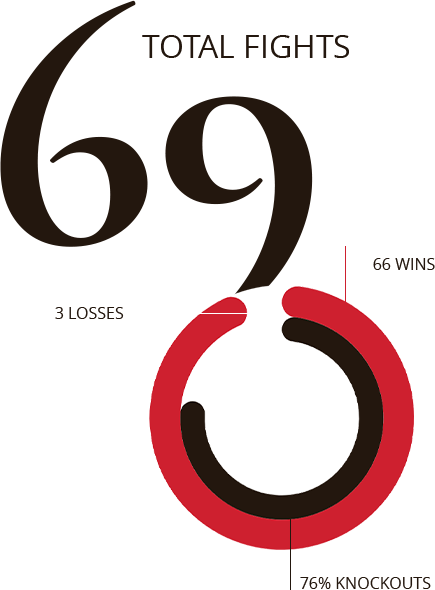
Joe Louis retired from boxing on March 1, 1949, with a record of 68 wins and one loss. He came out of retirement in 1950, needing to earn money, but he could not recapture his previous winning streak; he lost his last major bout on October 26, 1951, against future champion Rocky Marciano. He ended his extraordinary 17-year career with a record of 68 wins (54 of them knockouts) and three losses.
The consensus of the era had Louis firmly as the greatest heavyweight ever.
